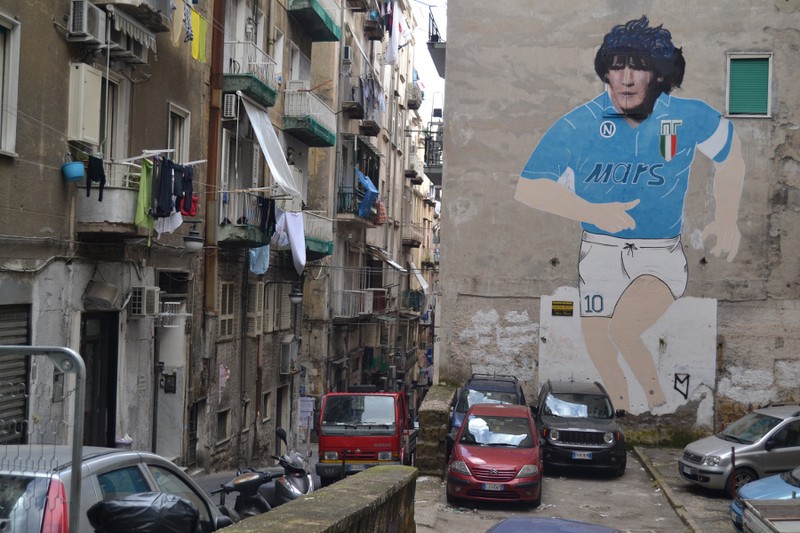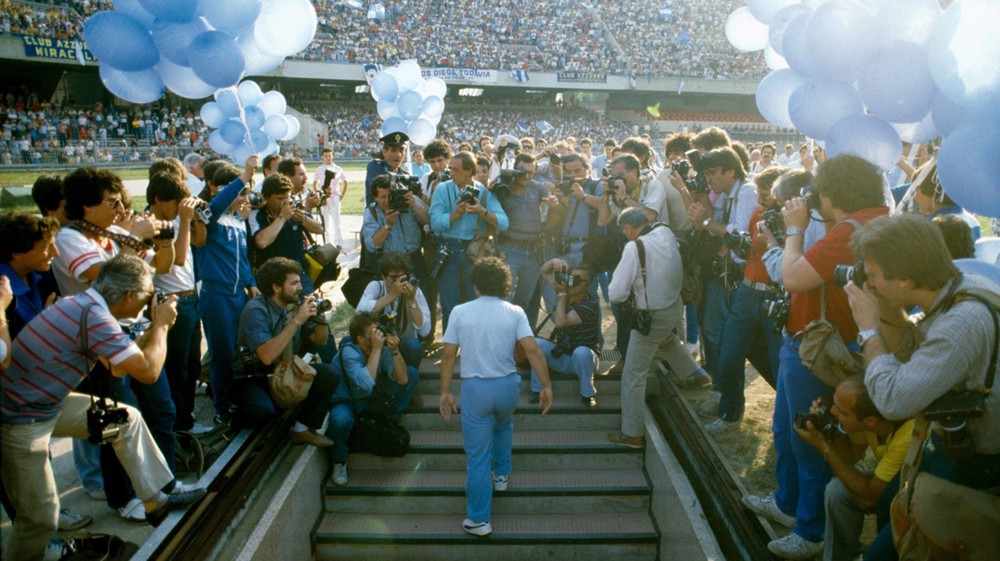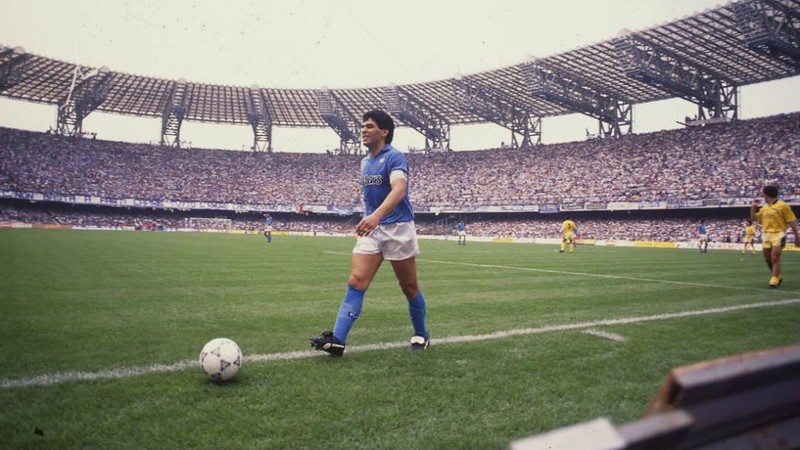
In the mid-80s Napoli was a half-board team in Italy, with no name and hardly ambition. But city and team were held in the wake of an idol that still lives in every corner of Naples. This is the story of the relationship between a man and a city that only stops when a name is cited: Diego Armando Maradona.
At the beginning of the decade of the '80, Naples was a city marked by the development that did not come, by oblivion, by violence. In general, the mafia and organized crime fill a gap left by the State, which made Naples become a decadent city as it had never been, very battered. It was a city that was at the lowest point in its history, that it needed to win something.
From Barcelona arrive news of a young Argentine player who is spoken of as the future best player in the world. One player, Maradona, who was called to win everything; a club, Napoli, which had never won anything in its history ... there are times that two pieces that should not be found, simply fit perfectly.
Napoli went to negotiate for Maradona, although nobody imagined that a player of that level would play Napoli. But on July 1, 1984 Barcelona accepts the offer of 7.5 million dollars from Napoli by Maradona. Calcio buys one more star, but this one was the biggest one.
Maradona - Naples: love at first sight.

In that period, Italian football was the most powerful in the world. There was a lot of money and therefore, the teams could acquire the best players in the world. Milan had Van Basten, Gullit and Rikjaard. Juventus had Platini. The Inter a Rummenigge. The Rome to Falcao. The Udinese to Zico. The Fiorentina to Socrates. All teams had a great champion ... but Napoli had Diego. Maradona left Barcelona with the feeling that in two years nobody understood him. He only needed one afternoon in Naples to feel the opposite.
If you had to choose a day to commemorate the passion for a football player, that would be on July 5, 1984. More than 70,000 people crowded the San Paolo stadium simply to receive Diego. Maradona appeared by the tune, grabbed a ball, kicked it to the sky and said: "Good afternoon, Neapolitans." At that moment a huge enthusiasm broke out because the best player in the world had arrived. It was nice to see for the first time the happy faces of the Neapolitans.
As soon as he arrived, Diego immediately showed his full potential. It shows that it will not be within the playing field where it has problems, the complicated thing was when it changed the lawn for the street. His first month in Italy was really difficult, he lived like a prisoner because Naples is oppressive.
During the first year and a half of his stay in Naples, Maradona's residence was a hotel. Every day there were thousands of people outside the hotel. Not even the hotel's own guests could be quiet, because there were people in the outskirts until 1am shouting "Diego, Diego!". They climbed the lamppost, which measured about 20 meters, only to see Diego through the window.
When Maradona left the hotel, there was also an order from the police station indicating the path Maradona would take to get the police to close the streets and prevent access to the rest of the cars. People wanted to touch him, he wanted to see him, he wanted to dry his sweat. Diego lived an impossible life in Naples; He was loved, persecuted and acclaimed by all.
The representative of all the Neapolitans.

There was a symbiosis between the city and the player. Diego, also physically, is more Neapolitan than Argentine. Naples is like this: sinuous, dark, small and great. That's why nobody could have been the emblem of this city, except Maradona. He carried the city in his image.
Maradona skipped all grades of communication. The communication with the club skipped, it jumped to the journalists and spoke directly with the liking. At that time in Italy there was only one television program that talked about football, "La domenica sportiva". One night Diego was invited to the program and said, with courage: "In Italian football there is racism, not against black people, there is racism against the Neapolitans, and it is a shame." Until then nobody had had the courage to say such a thing. But Maradona showed his face and defended the Neapolitans as nobody had ever done before.
The reality is that the south of Italy had been abandoned. And this cultural mortification is consolidated in the idea that the north is better and the idea that the south is inferior is also created. For the Neapolitans, a Scudetto of Napoli had the value of 10 achieved by the northern teams. Juventus has always been the team to beat, because it represents power. The truth is that Naples lives to win Juve. What made Naples fall in love with Maradona was a match. November 1985, Napoli - Juventus at the San Paolo Stadium. Indirect free kick in Juve area. Diego told who should serve the ball: "Do not worry, you touch me the ball and leave me." Maradona did the impossible, passed the ball over the barrier and nailed it in the corner with a delicacy and a technique rarely seen before, in one of the best free throws in history. He made an unthinkable goal, unrealizable; only Maradona was able to do something like that, and he did it. That match broke the balance, marked a change of trend. It was the demonstration that a southern city could fight with the north. The difference is that now the best player in the world played in Naples.
Maradona would be the captain of the Argentina National Team in the 1986 World Cup. Not only does he come as a representative of a country, he also comes as the representative of his city, Naples. The whole city was a fan of Argentina. There were giant screens throughout Naples, the streets were deserted when playing Argentina because everyone was in front of the television to see and support their idol. Such is the idyll of the city with Maradona that his mythical "Mano de Dios" against England was never seen as an unfair gesture, but as a sign of Neapolitan intelligence and liveliness. When Argentina finally beat Germany 3-2 in the final, all the people in Naples took to the streets with flags to celebrate.
After the 1986 World Cup, Napoli understood that the time had come to fight for the title. They would have to reinforce the team, accept the pressure ... and Maradona would take care of the rest.
Comments